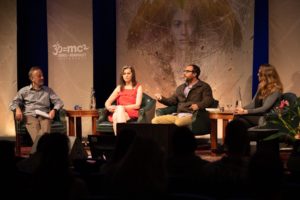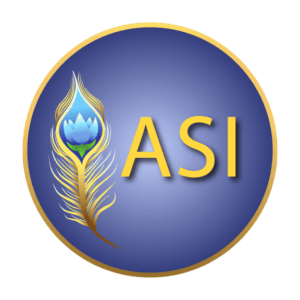 Kylea Taylor, M.S., LMFT, found two gaps in ethics education in the early 1990s while simultaneously studying to be a Marriage and Family Therapist and working as a senior trainer at the Grof Transpersonal Training where she assisted Stanislav Grof in training practitioners of Holotropic Breathwork®. Kylea observed that working with clients in non-ordinary states of consciousness requires different ethical awarenesses. She drew upon the tenets of several of the great religions to create InnerEthics™, a model for ethical self-reflection. The model clarifies the unique ethical territory of understanding and working skillfully with people who are experiencing profound and extra-ordinary states of consciousness and also provides a scaffolding for recognizing our semi-conscious, inner motivations as practitioners, teachers, and caregivers in order to avoid client and student harm and increase client and student benefit. Her book, The Ethics of Caring: Finding Right Relationship With Clients for Profound, Transformative Work in Our Professional Healing Relationships, illuminates transference, countertransference, power dynamics, dual relationship, and other topics important to relational ethics. The book won the 2017 Nautilus Book Award in the category, “Relationships & Communication.”
Kylea Taylor, M.S., LMFT, found two gaps in ethics education in the early 1990s while simultaneously studying to be a Marriage and Family Therapist and working as a senior trainer at the Grof Transpersonal Training where she assisted Stanislav Grof in training practitioners of Holotropic Breathwork®. Kylea observed that working with clients in non-ordinary states of consciousness requires different ethical awarenesses. She drew upon the tenets of several of the great religions to create InnerEthics™, a model for ethical self-reflection. The model clarifies the unique ethical territory of understanding and working skillfully with people who are experiencing profound and extra-ordinary states of consciousness and also provides a scaffolding for recognizing our semi-conscious, inner motivations as practitioners, teachers, and caregivers in order to avoid client and student harm and increase client and student benefit. Her book, The Ethics of Caring: Finding Right Relationship With Clients for Profound, Transformative Work in Our Professional Healing Relationships, illuminates transference, countertransference, power dynamics, dual relationship, and other topics important to relational ethics. The book won the 2017 Nautilus Book Award in the category, “Relationships & Communication.”
Kylea teaches, writes, and consults about ethics. She is also currently President and co-founder of SoulCollage Inc., which since 2003 has been training facilitators worldwide to share an expressive arts method that promotes deep self-discovery, individually and in community. Kylea’s focus as a therapist has been on assisting clients in integrating the meaning and extra-ordinary gifts of spiritual emergence, awakening or transpersonal experiences, and what she calls “personal paradigm shift” phenomena.
Discussion of this interview in the BatGap Community Facebook Group.
Interview recorded May 18, 2019.
Video and audio below. Audio also available as a Podcast.
YouTube Video Chapters:
- 00:00:00 – Introduction to Kylea Taylor and InnerEthics
- 00:03:14 – The Importance of Inner Motivations in Ethics
- 00:07:14 – Changing the Culture: A Mission for Ethical Behavior
- 00:10:29 – Development and Impediments in Different Ways
- 00:13:36 – Right Relationship and Learning from Mistakes
- 00:16:56 – The Interconnectedness of All Beings
- 00:20:24 – An Ethical Crisis in the Spiritual Community
- 00:24:14 – The Importance of Discernment in Spiritual Teachers
- 00:27:26 – Peer Supervision and the Johari Window
- 00:31:22 – The Importance of Self-Reflection for Teachers
- 00:34:39 – Power dynamics in spiritual communities
- 00:38:27 – Ethical Fading and the Detriment to Clients
- 00:42:01 – The Rajneesh community and the ethics of the student
- 00:45:13 – The Importance of Protection, Permission, and Connection
- 00:49:28 – Healing from Spiritual Wounding and Trauma
- 00:53:27 – Non-traditional therapy for PTSD
- 00:57:47 – Trusting the Inner Healer in Psychedelic Therapy
- 01:01:29 – Holotropic Breathwork and Psychedelics Comparison
- 01:05:33 – The Mechanics of Holotropic Breathwork and Prana Awakening
- 01:09:12 – A Powerful Kundalini Opening
- 01:13:07 – Caution in Non-Ordinary States of Consciousness
- 01:16:25 – Moving towards positive change with #MeToo movement
- 01:20:01 – Types of Individuals Who Might Benefit from Self-Reflection
- 01:23:51 – Learning from Mistakes and Apologizing
- 01:27:08 – Redemption and Transformation
- 01:31:10 – The InnerEthics Model and Self-Reflection
- 01:35:15 – Switching Hats: Finding Balance in Therapy
- 01:38:46 – The Importance of Ethics in Spiritual Development
- 01:42:21 – Different Experiences in Spiritual Emergence
- 01:46:06 – Surrendering Control
- 01:49:45 – Justification through illusion
Podcast: Play in new window | Download
Subscribe: Apple Podcasts | Spotify | Android | Email | TuneIn | RSS | More



